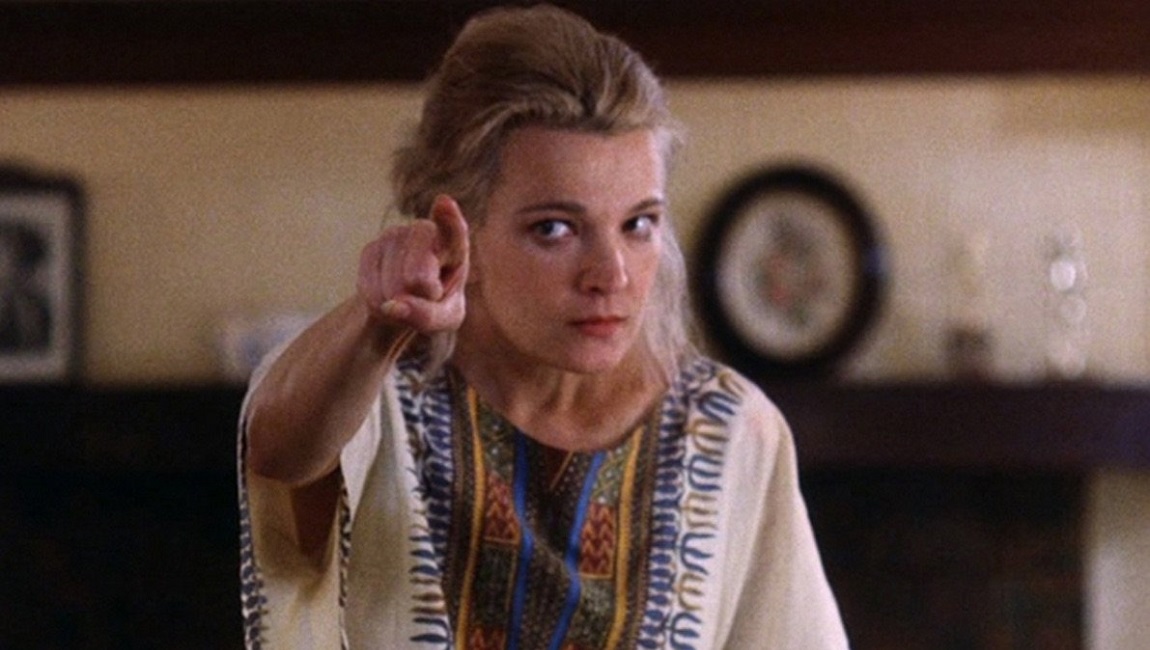There has never been an actor like Gena Rowlands, who died this week at the age of 94. That's evident in any scene from A Woman Under the Influence. Who else could be that vulnerable, that broken, that affected, and play it with such whimsy and dark comedy? There are moments when she's playing the character of Mabel like she's one of the Three Stooges or something, complete with comedic physicality. Mabel is a wreck, and not in the way most movies might depict someone going through a psychotic break, with a dignity that manipulates the sympathies of the audience. Instead, Mabel can be pathetic, uncomfortable, and completely emotionally naked in a way that makes you want to look away.
Even the best actors have a tendency to worry about looking stupid. That's why men love to let you know how method they've gone and how much endurance and research went into a role, as though there were an acting Olympics. The most dedicated actors often still want to be seen as strong when they're playing weak, smart when they're playing dumb, and capable when they're playing feeble. And if their characters are underweight or overweight, the actor might shed or gain those pounds themselves, but they really need you to know how hard they worked to get there. The hardest thing for an actor to play is pathetic. There's no glamor in it. There's certainly no Oscar for it. No one thinks it is admirable. And almost certainly no one finds it relatable. But Rowlands wasn't afraid to look bad, to be over the top, unmoored, and gritty in unflashy ways. The only other actor that willing to plumb those kinds of depths who comes to mind is John Cazale, but even with his four masterpieces, he never got to amass the body of work Rowlands did.
Much of that work came from the hands of her husband, John Cassavetes. Cassavetes, like Rowlands, did a lot of thankless acting work on a variety of television programs, along with the occasional movie, but filmmaking was his true passion. He also was interested in a type of realism and authenticity that Hollywood was completely devoid of, particularly in the '60s as the country was changing rapidly, Hollywood movies were growing stale, and the big studios were breaking apart. So Cassavetes began making independent movies, and Rowlands was his muse—in all the toxic and gratifying ways that word entails. Rowlands did 10 of Cassavetes's movies, starting with A Child Is Waiting, and in all 10 she shaded in the picture Cassavetes was drawing about the human condition.
Rowlands played characters that were beyond vulnerable—they were goofy, unsophisticated, and fragile to the point of shattering into a million pieces. And Rowlands excelled at it. Her voice was always a little wrong in the best ways, her emotions were right there on her face and in her eyes, and she brought a cartoonish physicality that was endearing even when it was unbearable to watch. A Woman Under the Influence will always be her tour de force but for me, the movie is Opening Night. In Opening Night, Rowlands plays the alcoholic theater actress Myrtle Gordon, who goes on something of a spirit quest following the death of one of her fans in the days leading up to the opening night of her play. Opening Night is bizarre, in the way all of Cassavetes is bizarre. But in that strangeness, they always touch on something real that's hard to fully articulate, and Rowlands embodied that sentiment in every performance. But here, it is painful to see the unflinching look at Myrtle's alcoholism, personified in the scene when she's drunkenly walking into the makeup room and putting her lipstick on before a performance. Opening Night is about the fear of aging, but beyond that it is the fear of losing relevance, particularly as an actress. It's also about the work it takes to embody a character, all building up to the performance at the end of the film. Rowlands in Opening Night is maybe the most magnetic actor I've ever seen, totally engrossed in a performance the way men get credit for being all the time.
Rowlands never got to be that kind of actor outside of Cassavetes, which was also true of his other regular performers: Peter Falk, Ben Gazzara, and Seymour Cassel. In their primes, Hollywood didn't provide those kinds of role. But the movies they made together paved the way for whole generations of films that came after them. Even a genre film like Gloria, which Rowlands brings so much pathos to in a B-crime movie, clearly made an impression on guys like Jim Jarmusch (who cast her in Night On Earth), Quentin Tarantino, the Safdies, and Wong Kar-Wai, who has a character in Chungking Express donning a blond wig as a tribute to the movie. Those movies still matter to cinephiles, even if Rowlands's most widely seen performance will remain the one in her son's blockbuster hit, The Notebook.
But by working outside the strictures of the industry at the time, Rowlands got to be the kind of actor many only dream of becoming, one so committed and courageous and selfless that they emerge with something transcendent, capturing how pathetic and sad being a human can be. It was and will forever be mesmerizing to watch.






